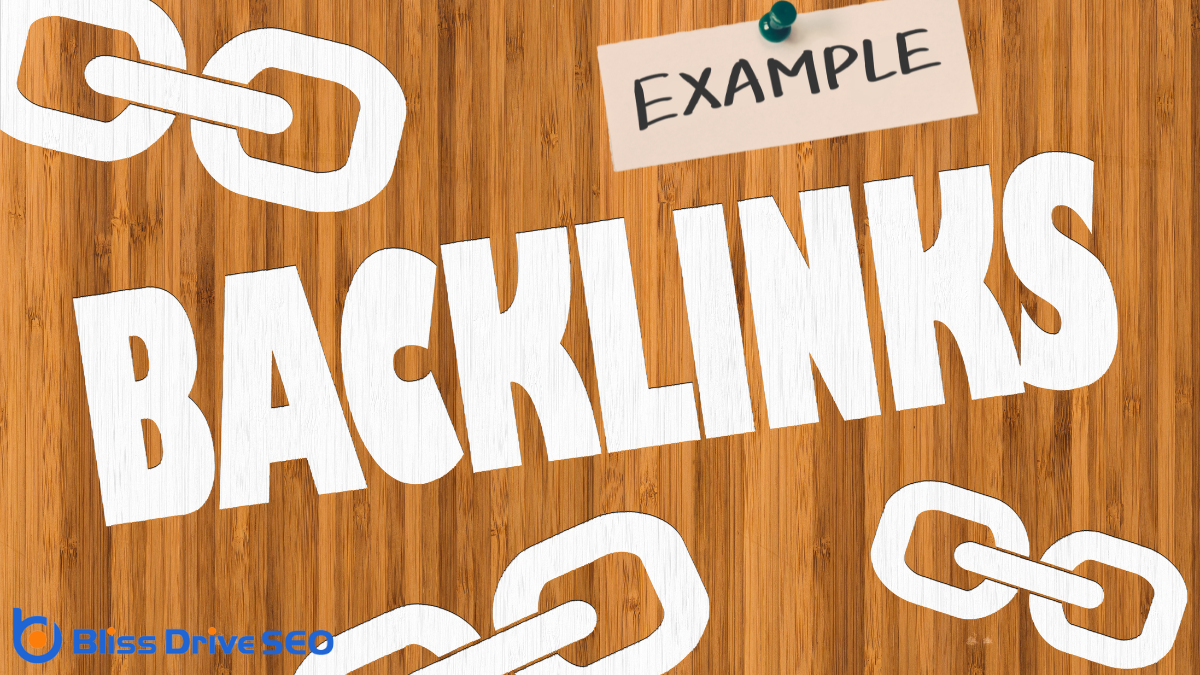Digital Marketing Services
Learn More About Us

You've probably heard the term "backlink" tossed around in the world of SEO, but what does it actually mean? Imagine you're running a tech blog, and suddenly, a major industry website decides to link to your latest article on AI innovations. This is more than just a simple link—it's a significant endorsement that can boost your site's visibility and authority. But how exactly do these links influence search rankingsThe position at which a website appears in the SERP., and what makes one backlink more valuable than another? Understanding these nuances can be essential for the growth of your online presence. Let's explore the intricacies of backlinksLinks from other websites pointing to your website, crucial for SEO. further.
However, not all backlinks are created equal. The value of a backlink depends on several factors, like the authority of the linking site and the relevance of the content. Understanding what a backlink is and why it matters can help you navigate the digital landscape more effectively.

Backlinks come in various forms, each serving a unique purpose in the field of SEO. Understanding these types can help you leverage them effectively.
First, you've got natural backlinks. These occur when someone links to your content simply because they find it valuable or relevant. You don't need to ask for these; they're like organic endorsements.
Then, there are manual backlinks. These result from intentional link-building efforts, such as reaching out to other websites to request a link to your content. It's a proactive approach often used in strategic SEO campaigns.
Another type is editorial backlinks. These are links that editors or site owners include in their content because they enhance the topic they're discussing. They're somewhat similar to natural backlinks but often come from more authoritative sources.
Guest bloggingWriting and publishing articles on a website to provide information and engage readers. backlinks emerge when you write articles for other websites and include a link back to your site. It's a win-win: you provide quality content, and in return, you gain exposure and a backlink.
Lastly, there are forum and comment backlinks. You can create these by participating in online discussions and leaving your website link in your comments or forum posts, though they should be relevant and non-spammy.
A key factor in enhancing your website's search engine rankings is the strategic use of backlinks. They act as votes of confidence from other sites, signaling to search engines that your content is trustworthy and valuable. When reputable websites link to yours, it boosts your site's credibility and authority in your nicheA specific segment of the market targeted by affiliates to promote products or services.. This can result in higher placement on search engine results pages, making it easier for potential visitors to find you.
Backlinks also drive direct traffic to your site. When someone reads an article on another website and encounters a link to your site, they're likely to click through if they're interested in learning more. This increases your site's visibility and can leadA potential customer referred by an affiliate who has shown interest in the product or service but h... to higher engagementThe interactions that users have with a brand’s content on social media. and conversionThe completion of a desired action by a referred user, such as making a purchase or filling out a fo... rates.
Furthermore, backlinks foster relationships with other content creators and businesses. By linking to their content and having them link back, you can establish a network of partnerships that might lead to collaborations or guest posting opportunities. This can expand your reach and introduce you to new audiences.
To truly benefit from backlinks, one must prioritize their quality over mere quantity. It's not just about collecting links from every possible source; it's about ensuring these links come from reputable, authoritative sites. When a well-respected site links to yours, it sends a strong signal to search engines that your content is valuable and trustworthy. This can notably enhance your site's credibility and ranking.
Another key characteristic of a quality backlink is relevance. The linking site should relate to your niche or industry. For instance, if you run a travel blog, a backlink from a popular travel magazine carries more weight than one from an unrelated tech blog. Relevant links show search engines that your content is pertinent and engaging.
Additionally, consider the anchor textThe clickable text in a hyperlink, important for SEO as it provides context for the linked page.—the clickable text in a hyperlink. It should be descriptive and relevant, providing context about the linked content. Search engines use this as a clue to understand the content's subject matter.

When you're aiming to build your site's authority, understanding organic backlinks is essential. Organic backlinks are those you earn without actively seeking them out. They're the result of others finding your content valuable or insightful enough to link to it.
For instance, if you've written a detailed guide on a topic, a blogger might reference your article in their own post. This type of backlink is genuine and reflects the quality of your content.
Consider a scenario where a journalist is writing an article and includes a link to your site as a trusted source. This happens because your content provides the information their audience needs.
Another example is when your infographic or research study gets shared by influencersIndividuals with the power to affect the purchasing decisions of others due to their authority, know... or other industry leaders. They link back to your original work because it enhances their own content.
Additionally, if you've created a tool or resource that people find helpful, they're likely to mention it in their blogs or forums, providing an organic backlink.
While natural backlinks are invaluable for your site's authority, guest blogging offers another effective strategy to gain high-quality links. By writing articles for other websites, you can insert links back to your site within the content or author bio. This not only helps with link buildingThe process of acquiring backlinks from other websites. but also enhances your visibility and credibility in your niche.
To start guest blogging, identify blogs that align with your industry and have a solid readership. Reach out with a well-crafted pitch, showcasing your expertise and proposing topics that would interest your audience. By providing valuable and engaging content, you'll increase the chances of your contribution being accepted.
Once your article is published, it's essential to monitor its performance and the traffic it brings to your site. You want to confirm the links are do follow, meaning they pass on link equity, boosting your site's SEO. Remember, the quality of the site you're posting on matters greatly. High-authority sites offerThe specific product or service being promoted by affiliates. more valuable backlinks, enhancing your site's reputation.
Guest blogging isn't just about the links; it's about building relationships and establishing yourself as an authority. Consistency and quality are key, so make sure your guest posts reflect your brand's standards.

Editorial backlinks are important because they signal trust and authority to search engines, enhancing your site's credibility.
You'll gain trust when reputable sites link to your content naturally, showing that your information is valuable and reliable.
An editorial backlink is a powerful asset that greatly enhances your website's authority and credibility. When a reputable source links to your content, it signals to search engines that your site provides valuable and trustworthy information. This can lead to higher search rankings, driving more organic trafficVisitors who come to a website through unpaid search engine results. your way. Understanding the importance of these backlinks can help you focus your efforts on what truly matters.
Here are three key reasons why editorial backlinks are important:
Trust is the cornerstone of any successful online presence, and editorial backlinks play an essential role in building it. When a reputable website links back to your content, it's like receiving a vote of confidence. These links signal to search engines and potential visitors that your content is valuable and trustworthy. You're not just getting a link; you're gaining the trust of authoritative sites, which can significantly boost your credibility.
To understand why this is so powerful, think of editorial backlinks as endorsements. Just like you'd trust a restaurant recommendation from a respected food critic, users, and search engines trust websites with links from credible sources.
The process is simple: when an authoritative site links to your content naturally, it tells its audience, "This is worth checking out." It's this implicit endorsement that enhances your site's reputation.
Moreover, gaining trust through these links isn't just about numbers. Quality outweighs quantity. One link from a well-regarded site can have more impact than several from lesser-known sources. So, focus on creating content that others find worth linking to, and watch your credibility soar. Remember, trust isn't just earned; it's built link by link.
Creating a natural backlink profile is essential for establishing a strong online presence. When search engines detect that your backlinks come from credible sources, they're more likely to boost your site's rankings. But how do you maintain your backlink profile so that it appears natural and not forced? Here are three strategies you can follow:

To earn backlinks, focus on creating high-quality content that naturally attracts attention and shares.
Connect with influencers in your niche who can amplify your reach and endorse your work.
When you produce top-notch content, it naturally attracts backlinks, acting as a magnet for other websites to reference your work. But what does "top-notch" really mean, and how can you make sure your content stands out? Start by offering value. Your content should solve problems, provide unique insights, or offer detailed information that others can't find elsewhere.
Here's how you can leverage top-notch content to earn backlinks:
Building relationships with influencers is a strategic way to earn valuable backlinks for your website. When influencers link to your content, it not only boosts your site's SEO but also exposes you to their audience, which can significantly increase your reach.
To start, identify influencers in your niche whose values align with your brand. Engage with their content by commenting on their posts, sharing their work, and providing genuine feedback.
Once you've established a connection, propose a collaboration that benefits both parties. This could be a guest blog post, a podcast interview, or a co-hosted event. Offering something valuable in return makes them more likely to mention your site, thereby creating a backlink.
Be authentic in your interactions. Influencers get countless pitches, so yours needs to stand out. Personalize your communication to show you've done your homework. Highlight specific ways they can benefit from partnering with you.
Essentially, grasping backlinks is vital for improving your website's visibility and credibility. By acquiring quality backlinks, you're essentially receiving endorsements from reputable sites, which can enhance your site's trustworthiness in the view of search engines. Concentrate on earning organic backlinks through valuable content, guest blogging, and establishing connections with other industry experts. By taking these steps, you'll enhance your site's reputation and search rankings, aiding in attracting more visitors and expanding your online presence.
